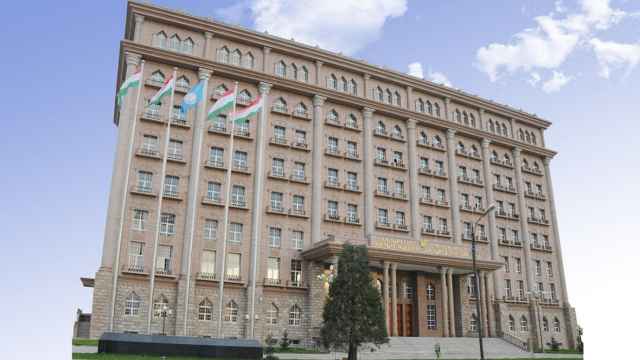A string of attacks on policemen in Astrakhan this summer was carried out by radical Islamists whose leader was killed Tuesday after being identified by his detained followers, investigators said in a statement.
Gaini Zhumagaziyev, 39, was trapped in a house in Astrakhan by law enforcement officers who shot him dead after he refused to surrender, the local branch of the Investigative Committee said on its web site.
Zhumagaziyev, already on a federal wanted list for unspecified charges, was named by two other suspects, Saipula Badrudinov, 30, and Nail Kafarov, 35, who were detained Sunday and Monday, respectively, the statement said. Additional suspected accomplices remain on the run.
Pistols and machine guns — some of them taken from police officers — were found on the three suspects along with explosives, the committee said. The men followed the Wahhabi sect of Islam, which is popular among extremists in the North Caucasus.
Three police officers were killed and four more hospitalized in three attacks in July and August in Astrakhan. The city and surrounding region are near the volatile Caucasus region in southern Russia, but Islamist violence is uncommon there, leading police to suspect initially that gangsters or vigilantes were behind the killings.
The suspects are also linked to two other assaults, the committee said.
Last month, police said they identified the suspects as two brothers from Kazakhstan, aged 36 and 38, and a 20-year-old ethnic Tatar. No names were released at the time.
This spring, a gang of six young men in the far eastern Primorye region began launching guerrilla attacks on police in revenge for "lawlessness." In June, two of the men were killed, while the remaining four were captured and are being tried for murder and other crimes.
A Message from The Moscow Times:
Dear readers,
We are facing unprecedented challenges. Russia's Prosecutor General's Office has designated The Moscow Times as an "undesirable" organization, criminalizing our work and putting our staff at risk of prosecution. This follows our earlier unjust labeling as a "foreign agent."
These actions are direct attempts to silence independent journalism in Russia. The authorities claim our work "discredits the decisions of the Russian leadership." We see things differently: we strive to provide accurate, unbiased reporting on Russia.
We, the journalists of The Moscow Times, refuse to be silenced. But to continue our work, we need your help.
Your support, no matter how small, makes a world of difference. If you can, please support us monthly starting from just $2. It's quick to set up, and every contribution makes a significant impact.
By supporting The Moscow Times, you're defending open, independent journalism in the face of repression. Thank you for standing with us.
Remind me later.





